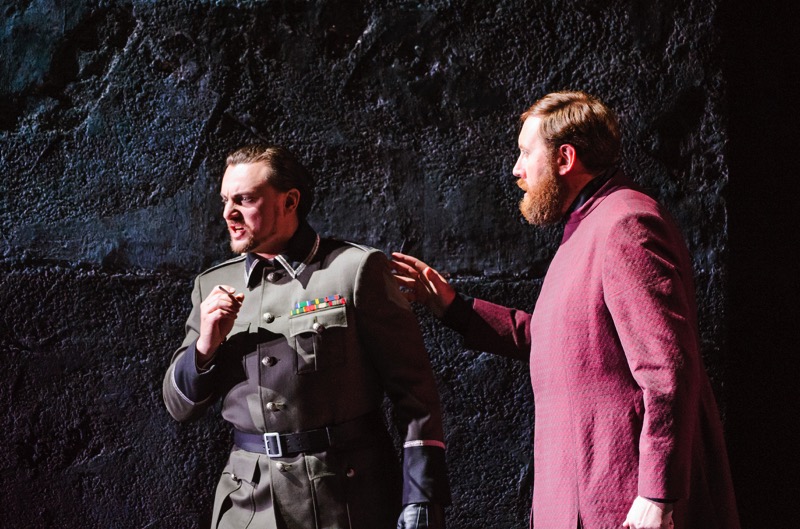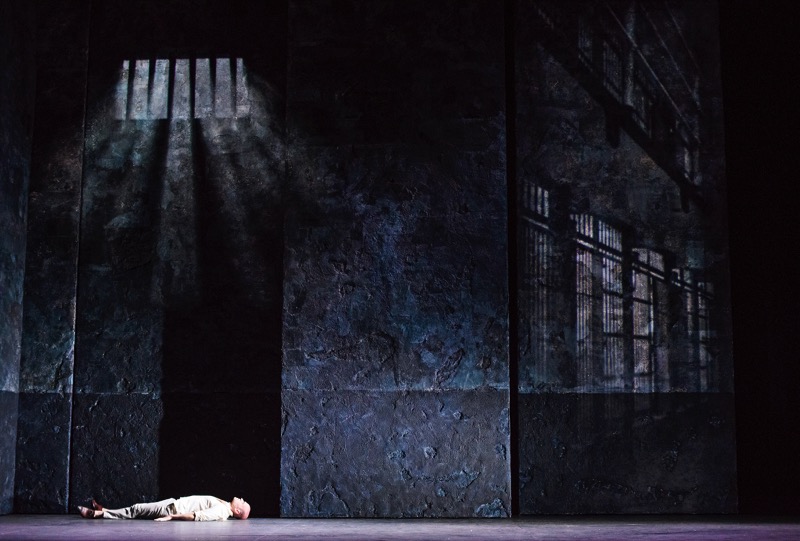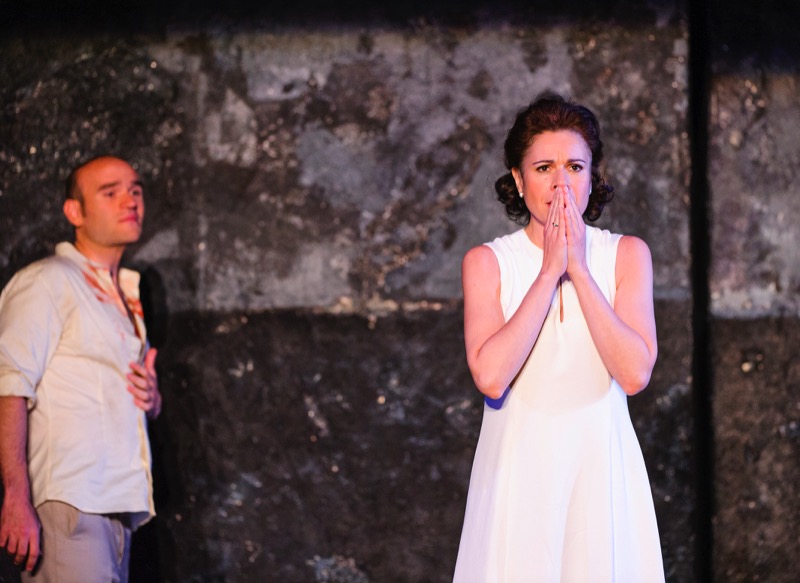Poliuto, Glyndebourne, GFO, May 2015
Posted on 22 May 2015Composed for Naples in 1838, but banned because of the subject matter, it took another ten years before a production of the original was mounted in Italy, just a few months after Donizetti’s death. In the meantime Paris had taken it on as a grand opera under the title Les Martyrs, with a new text by Scribe, and a performance of the French version at the Festival Hall last November whetted the appetite for this UK premiere at Glyndebourne, brilliantly conducted by Enrique Mazzola.

Projection of the arena for execution, all images GFO/ Tristram Kenton
Based on a 1642 play by Pierre Corneille, the story takes place in third century Armenia, though director Mariame Clément has moved the action to the twentieth century, where religious conflict has found new life. The programme contains images of 1990s Sarajevo, but for me the setting conjured up Mussolini’s Italy, where La Scala produced Poliuto (with Gigli and Caniglia) the same year Hitler met Il Duce at the Brenner Pass. History aside though, this production takes an intriguing approach to the staging with massive, rectangular blocks of stone moving laterally while the cast somehow flows in, around and between them. The imagery is clear. The imperatives of Roman domination hit the anvil of human defiance when there is no other way out.

Roman Proconsul and High Priest of Jupiter
Yet the bleak and forbidding sets also serve as screens for video projections, visible for a few moments before vanishing: roiling waters reflecting Paolina’s emotional turmoil, a window in her room that vanishes when the Roman proconsul enters, signs of pleasant life outside, and the dull interior of a jail. None of these get in the way of the action, being all so transient, but the director and her designer Julia Hansen have used them to enhance a setting in which the determination and massive emotions of the characters can be played out spatially, leaving the singers to give their very best, which they did.

Projection of prison with Poliuto on the ground
At the end we see Poliuto and his wife Paolina facing one another but separated by a massive block, awaiting certain death. Martyrs both, witnesses to their belief in life after death, rather than the false gods of Callistene, the scheming High Priest of Jupiter.
As Poliuto, Michael Fabiano delivered huge power along with the vocal ability to articulate his emotions, as did Igor Golovatenko as the Roman Proconsul Severo, both in love with Ana Maria Martinez’s excellent Paolina, and their trio towards the end of Act II was riveting. Superb too was the previous sextet that included Matthew Rose’s imposingly sung Callistene along with the finely sung Nearco (leader of the Christians) of Emanuele D’Aguanno and Timothy Robinson’s noble Felice, Governor of Armenia and father of Paolina.

Poliuto and Paolina ready for martyrdom
Under eloquent musical direction by Enrique Mazzola with the London Philharmonic, and refined stage direction by Mariame Clément the newsworthy costume controversy of last year’s Rosenkavalier is a thing of the past, and this UK premiere of a fine if little known Donizetti opera sets a bold marker for the opening of the 2015 season.
Performances continue on various dates until July 15 — for details click here.

